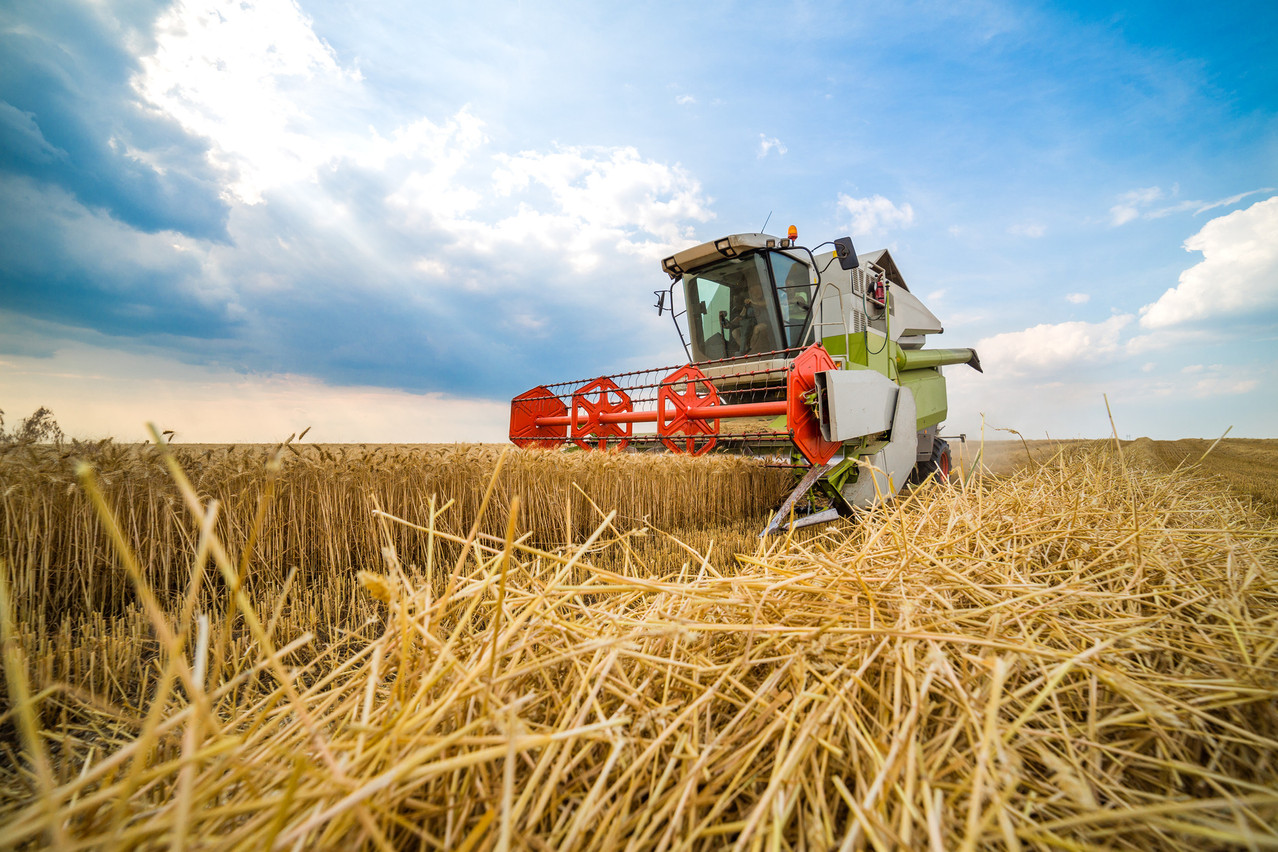“I don't have precise figures, but farmers are worried. It must absolutely rain in the next few days,” says the director of the Luxembourg agriculture chamber, Vincent Glaesener. “It's nothing we haven't experienced before. But it feels like it's happening more and more often. The novelty this year is the timing of the drought, which arrives in the spring,” adds Guy Steichen, head of the advisory service at the agriculture chamber. The cumulative rainfall between 1 March and 18 May 2022, which reached 59.8 litres per square metre, was around 67% lower than the average between 1991 and 2020, according to a preliminary climatological assessment by MeteoLux.
Heavy washouts during storms such as those the country experienced last week are of no use, according to Glaesener, because they do not allow water to penetrate the soil properly. On the contrary, they can destroy some crops. The ideal is continuous rain. “We straddle the Rhine and the Meuse, and what flows down goes to Belgium and Germany, and we are forbidden to irrigate.”
Less grain for cereals
The consequences affect agricultural activities in different ways. While maize seeds usually germinate within a week of being sown, at the beginning of May, this year “we had to wait almost three weeks, with the heavy rains last week”, says Steichen. It is still too early to assess the impact of this delay on the harvest. “We have lost at least two weeks, but if the weather improves, nothing is lost yet.”
He talks about "inevitable" losses in cereals such as wheat, maize, barley or oats. “If the wheat is water-stressed, it reduces grain production,” says Glaesener.
A lack of hay for livestock
Cereals are used to produce flour and to feed livestock. And already affected by an explosion in prices, because of the war in Ukraine. “I can't say how prices will develop, but at the moment we are almost double the price of last year,” says Guy Steichen.
Another limitation for breeders is the lack of hay. Here again, a recurring problem, which seems to have intensified. “Normally, in spring, there is still enough water, and the first cut of grass is good," says the head of the agriculture chamber's advisory service. “This year, the drought came a month early, and the yield is below average,” he says, without being able to quantify it for the moment.
For fruit, at least 5% losses
Regarding vegetables, a “smaller cabbage harvest is already expected”, says market gardener Jean-Claude Muller. “The same goes for celery. It has hardly rained since Easter”, he regrets. “In the end, we will still be short of a certain quantity.” It will depend on the next few days, which he hopes will be rainy. “If June and July are wetter, we can expect only 5-10% losses. If the weather stays dry, we could possibly lose all of it,” even on crops like lettuce, which can be irrigated, because there will not be enough drinking water.
A positive spring for winegrowers
Only the winegrowers say they are “happy” with the dry weather for the moment, admits Serge Fischer, research officer at the Institut Viti-Vinicole. “It slows down the development of vine diseases,” he explains. And the heat “makes it easier to achieve the desired ripening”. This has no impact on the quantity, but on the quality of the wine. The only drawback is that “the dry soils affect the young plants, either this year or two or three years old. You have to water.” Hailstorms also caused some damage but that has remained limited.
The heat has also accelerated the fruit harvest in some countries, especially strawberries. “This is a specific situation in the south of France. In Luxembourg, we are not yet at this level,” explains Glaesener.
Towards an adaptation of varieties?
If the extreme weather situations are repeated in the years to come, “we will have to resort to more resistant varieties as time goes by,” he projects. He cites “plants that grow in Africa, such as sorghum, or cereals that have never been heard of in Europe”.
This story was first published in French on . It has been translated and edited for Delano.
